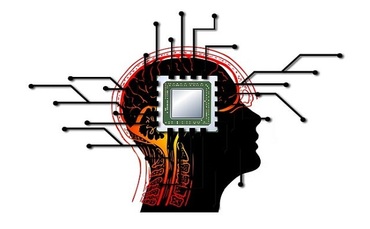Taking on X, Musk touted “promising” brain activity post-procedure and assured followers that the patient was “recovering well.”
The first human received an implant from @Neuralink yesterday and is recovering well.
Initial results show promising neuron spike detection.
— Elon Musk (@elonmusk) January 29, 2024
In a follow-up post, Musk announced that Neuralink’s inaugural product would be called Telepathy.
Details on the patient’s identity were not disclosed, but it is speculated that the individual may have been suffering from conditions such as spinal cord injuries or amyotrophic lateral sclerosis (ALS), as the company had been actively recruiting participants with these conditions for its Precise Robotically Implanted Brain-Computer Interface (PRIME) study.
Musk says the BCI innovation promises “seamless” control over electronic devices through thought, offering newfound independence to individuals who have lost limb functionality.
“Initial users will be those who have lost the use of their limbs,” he said.
“Imagine if Stephen Hawking could communicate faster than a speed typist or auctioneer. That is the goal.”
Despite Musk’s assertions, independent verification of the claims remains elusive, and Neuralink has shared scant details about the procedure.
The implantable BCI employed in the PRIME study is designed to decipher intended movement signals derived from brain activity, and subsequently control devices to aid in movement.
Consisting of 1,024 electrodes dispersed across 64 threads, each finer than a human hair, the BCI “effectively captures neural activity,” according to the company.
These threads facilitate wireless transmission of brain signals to an accompanying app, decoding the user’s intentions. The ultimate objective is to empower participants to control computer cursors or keyboards using their thoughts alone.
Neuralink’s journey has not been without its own challenges and controversies, though.
The company faced scrutiny and criticism during its animal trials, with allegations of surgical mishaps prompting backlash from advocacy groups.
The approval process for clinical trials faced significant delays, with the US Food and Drug Administration (FDA) sharing concerns ranging from potential brain damage upon removal to the risks associated with lithium-ion batteries in the brain.
Questions have also been raised regarding the cybersecurity of Neuralink’s implants, prompting fears of potential hacking and unauthorised access to users’ neural data.
Musk has vehemently defended his company’s practices, asserting the integrity of its research and the prioritisation of safety.
The road forward
While Neuralink’s first human trial represents a crucial milestone, the road to commercialisation is still fraught with challenges.
The company anticipates conducting additional surgeries in the coming year as it refines the design and functionality of its device. A feasibility study will follow, eventually leading to pivotal trials.
And Neuralink is not the sole player in the burgeoning field of BCI technology.
Rival firms, including the École Polytechnique Fédérale in Lausanne (EPFL) and Utah-based Blackrock Neurotech, have achieved their own successes in enabling paralysed individuals to walk or communicate through similar neural interfaces.
Precision Neuroscience, a venture helmed by a Neuralink co-founder, offers an alternative approach with a surface-level brain implant, which resembles a thin piece of tape. This innovation, it claims, simplifies the implantation process, potentially widening accessibility to BCI technology.
Computing says:
It would be difficult not to be either excited or scared of this, depending on your level of trust in technology/Musk. The potential transformative effect on people’s lives can’t be overstated, but at the same time an IoT device implanted into a human brain is on a whole new level of security risk.
On top of all that, you have the dystopian view of brain implants, location tracking, and programming humans. Way, way in the future? Maybe, but there’s no doubt that the technology will eventually exist. If the West regulates it our of existence, other states around the world will lean in.
We can’t deny that Telepathy is a fantastic name, though.

Wanda Parisien is a computing expert who navigates the vast landscape of hardware and software. With a focus on computer technology, software development, and industry trends, Wanda delivers informative content, tutorials, and analyses to keep readers updated on the latest in the world of computing.


